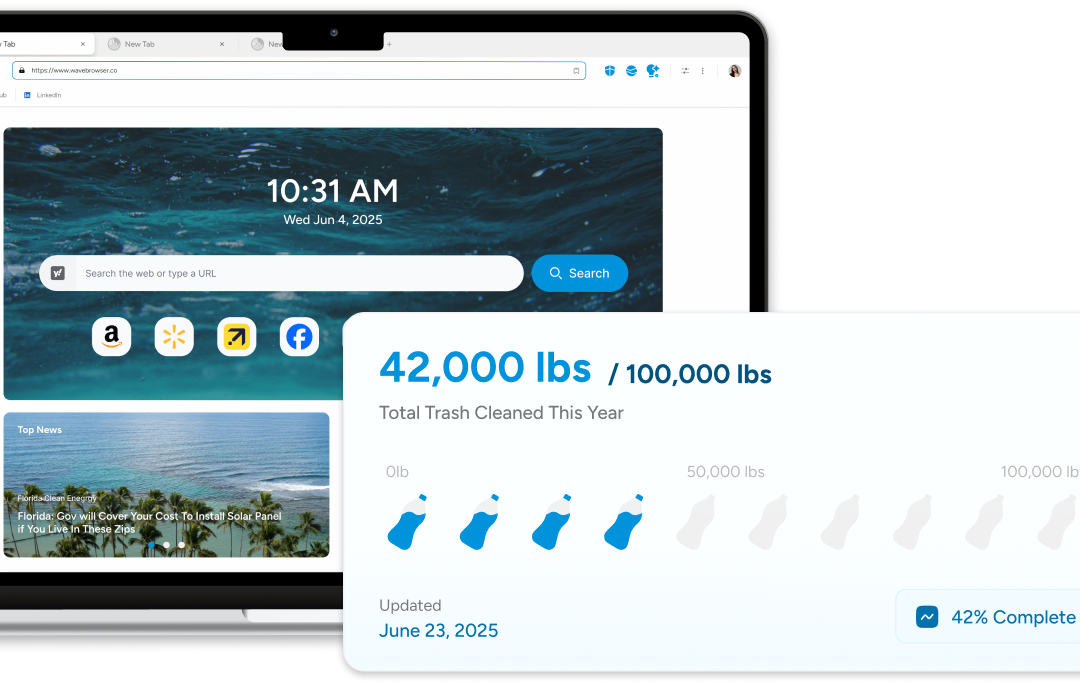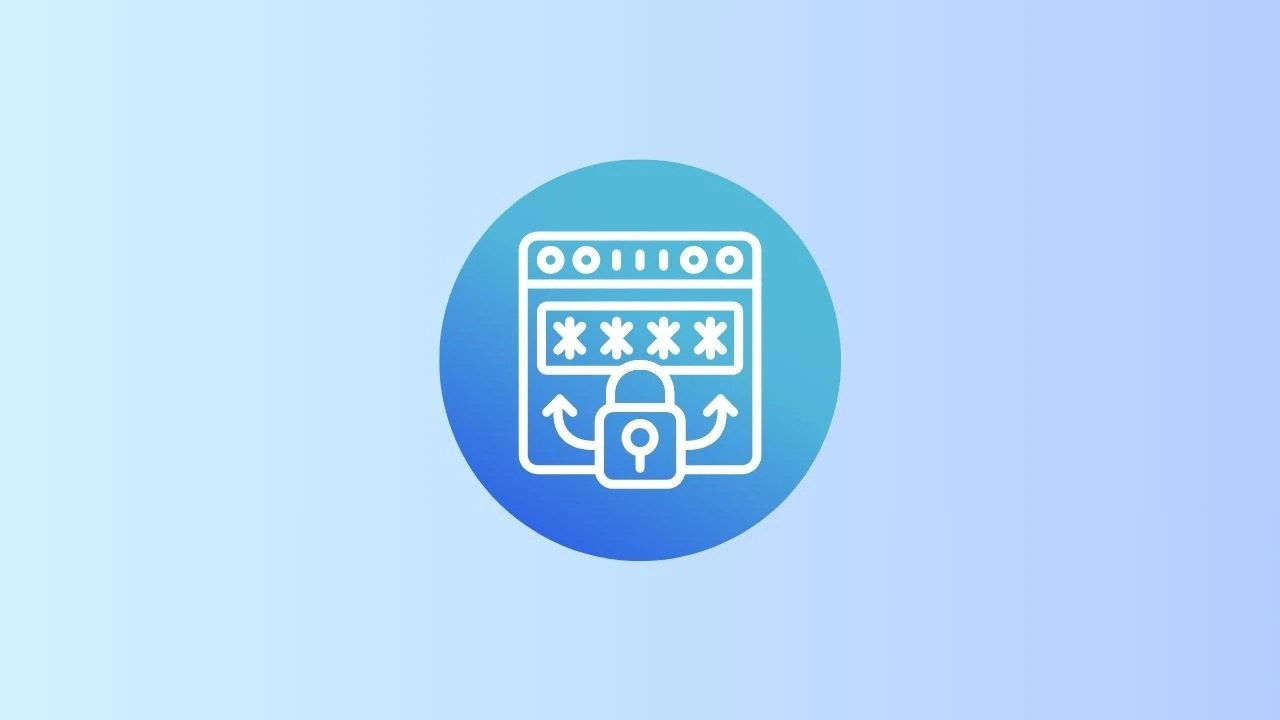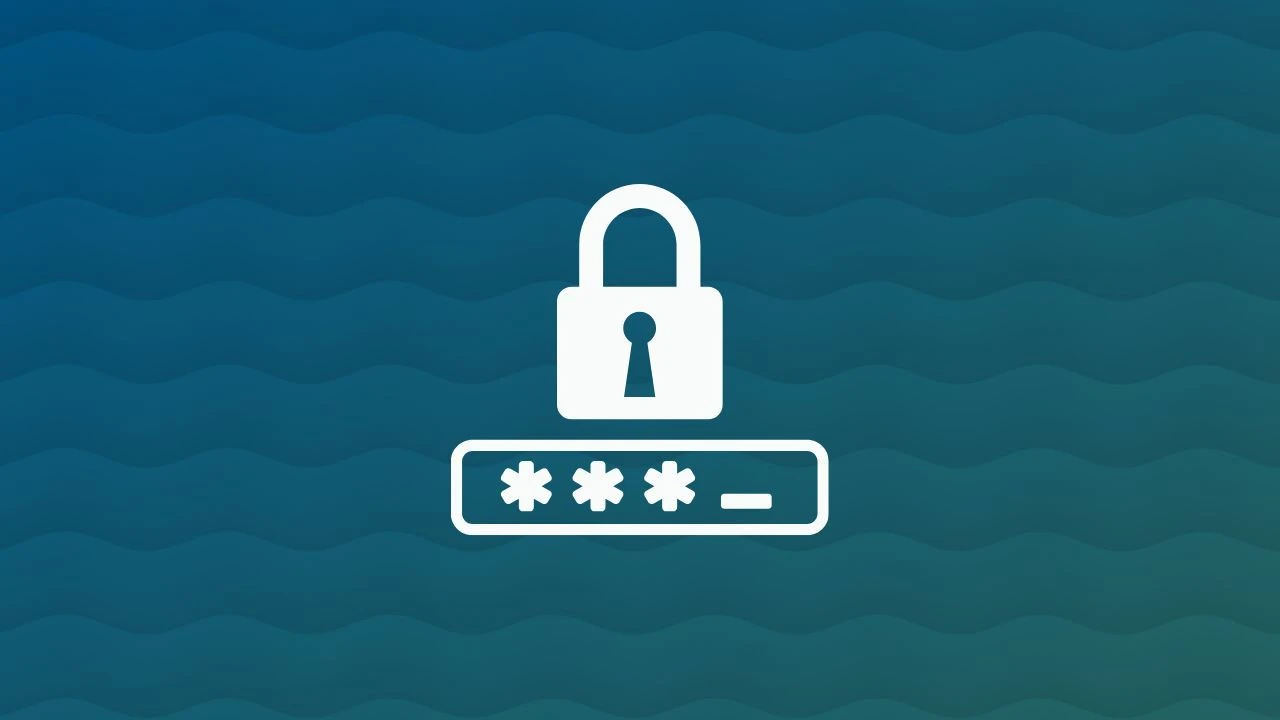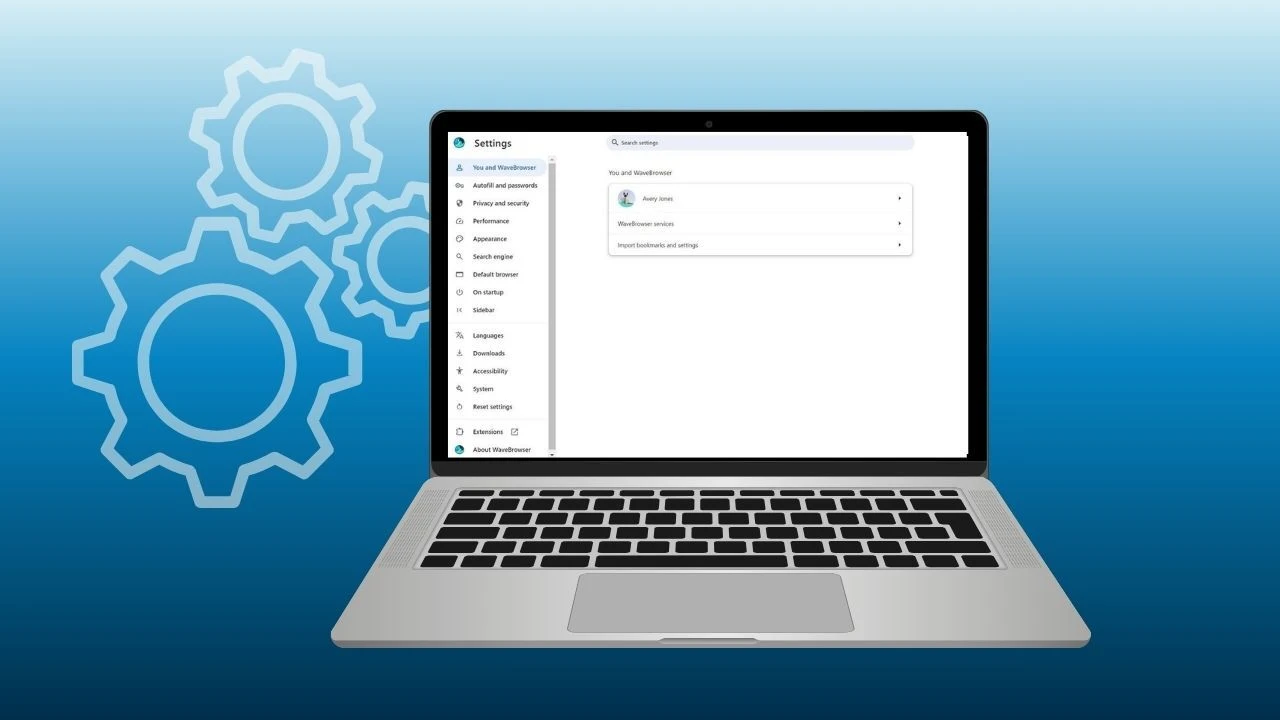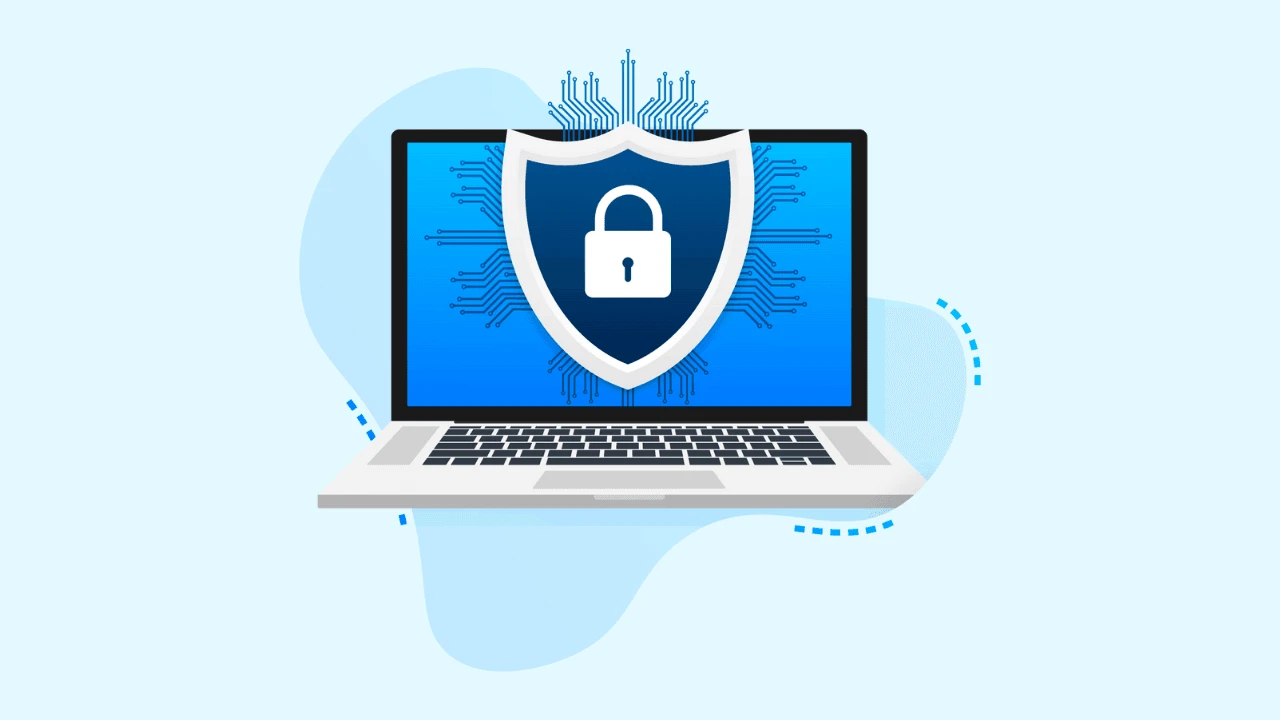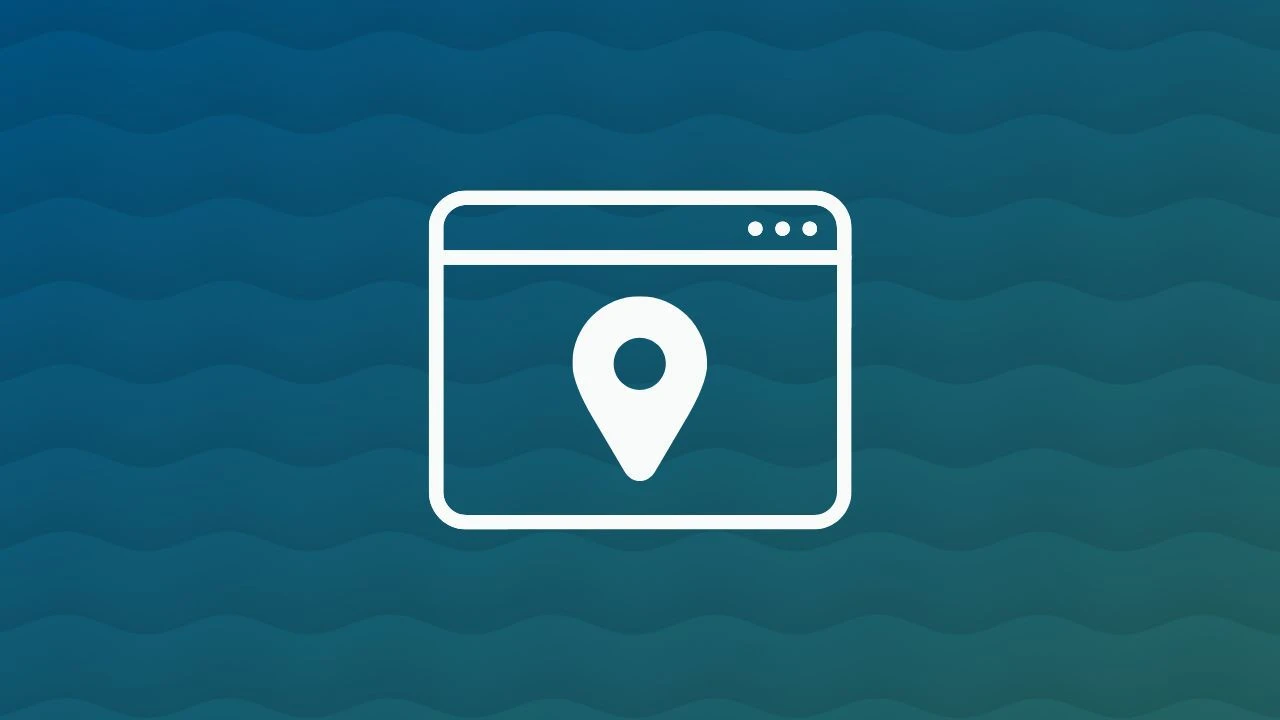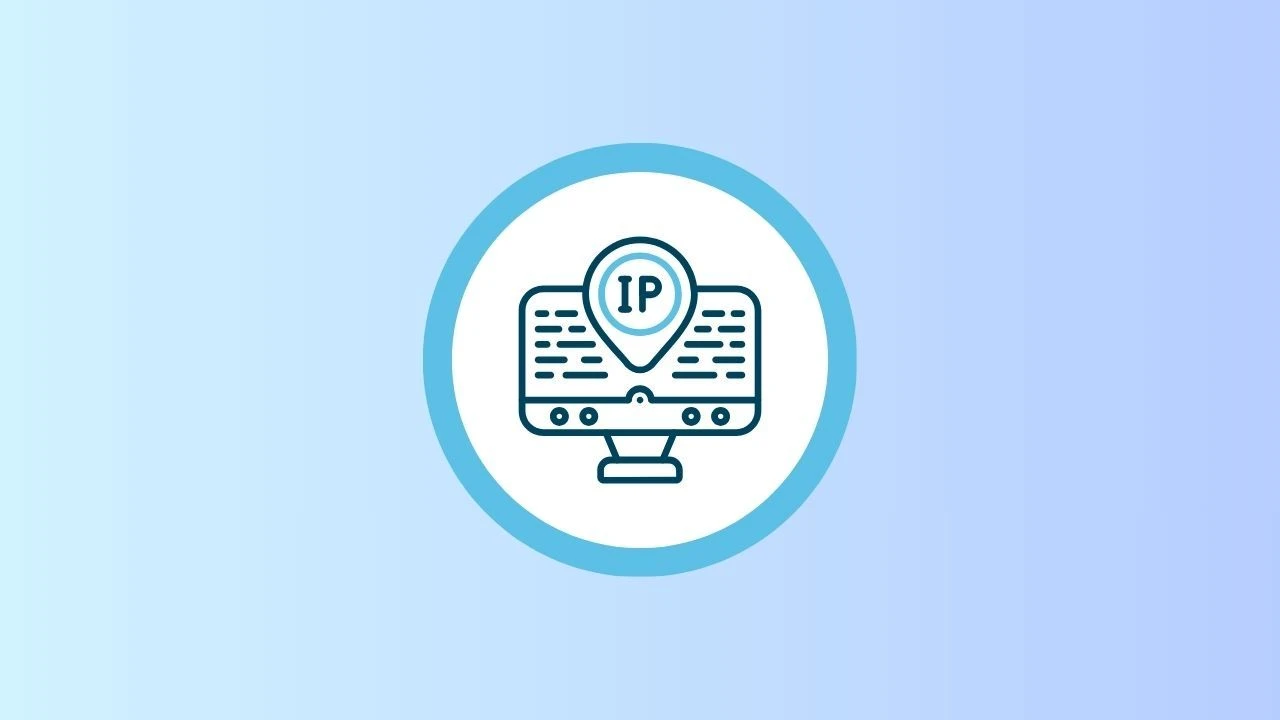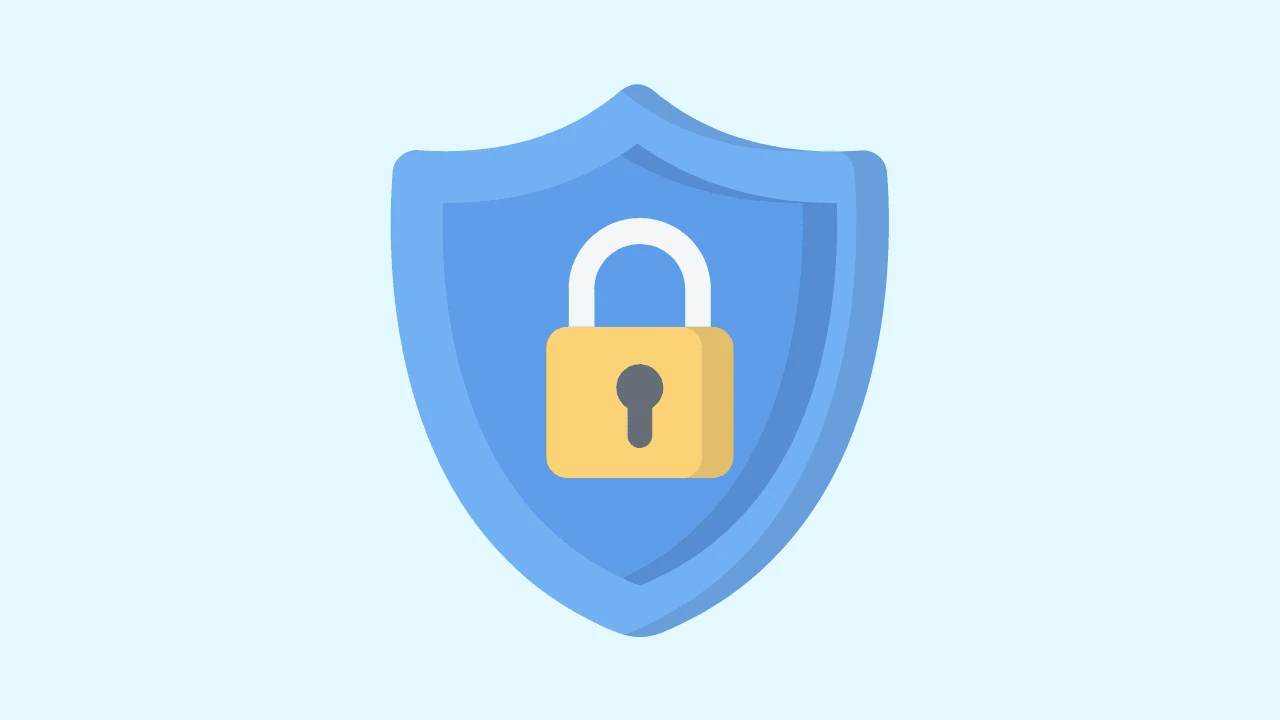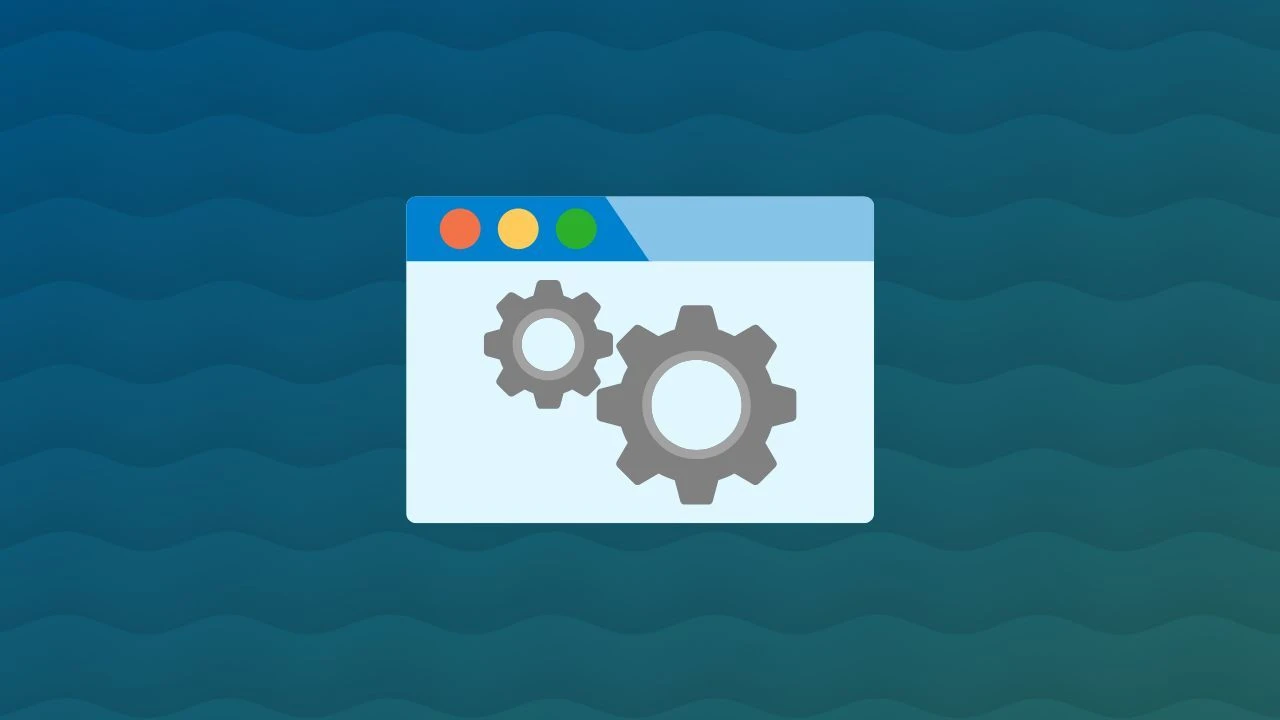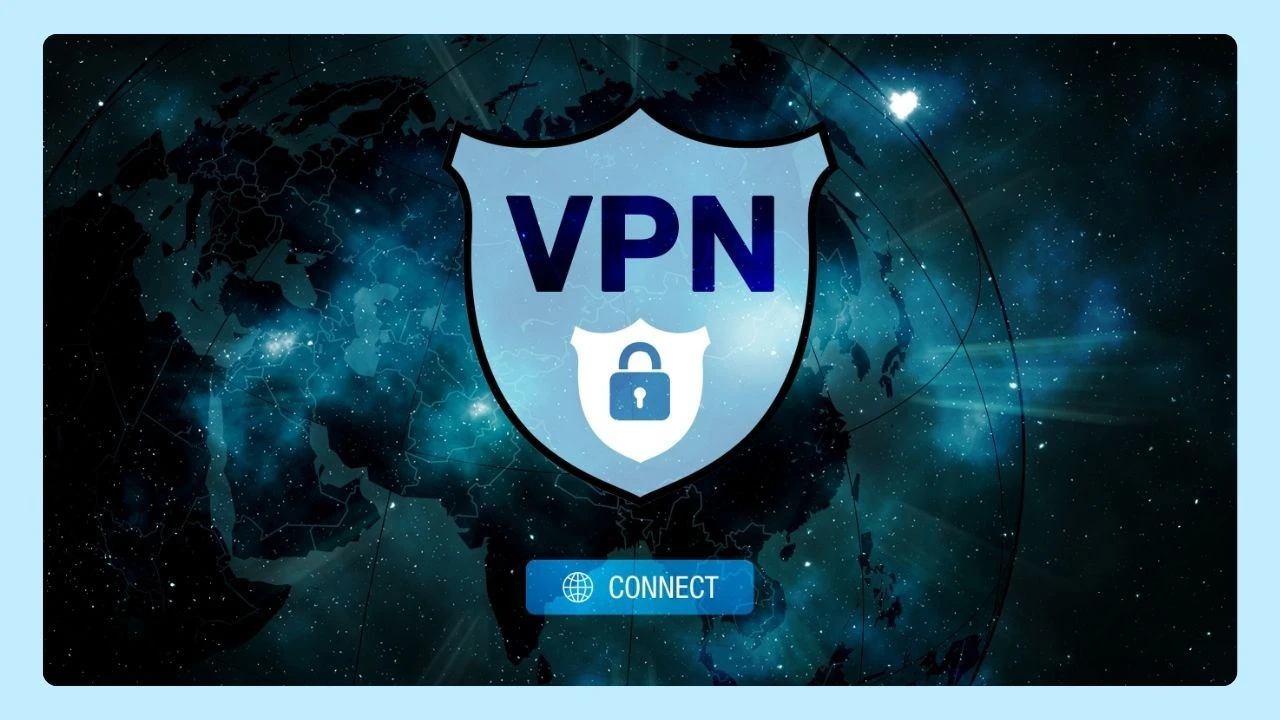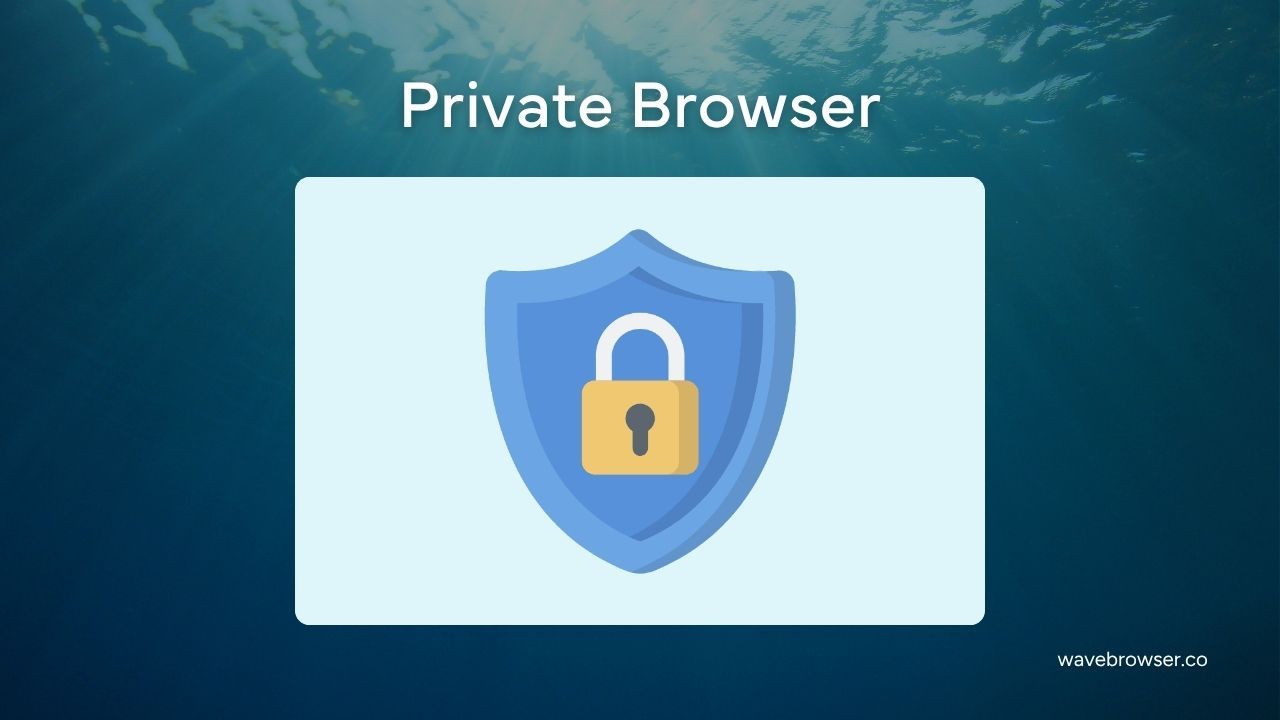
In a world where your every click can be tracked, stored, and analyzed, private browsing isn’t just a feature—it’s a necessity. Whether you’re using Chrome’s Incognito mode, Safari, Firefox, or exploring smarter, eco-conscious alternatives like Wave Browser, your digital footprint matters more than ever.
Let’s explore how you can take control of your personal data, reduce tracking, and make your browsing history your business—while supporting ocean cleanup with every tab you open.
What Is a Private Browser?
A private browser enables you to surf the internet without saving your browsing history, cookies, or autofill data. It’s useful when you're using public computers, managing multiple accounts, or simply want to prevent Google search results and ads from targeting you.
However, not all private browsing modes are created equal. Most people rely on Google Chrome's incognito mode, for example, but that only hides activity on your device—not from websites, trackers, or your ISP.
Benefits of Using Private Browsing
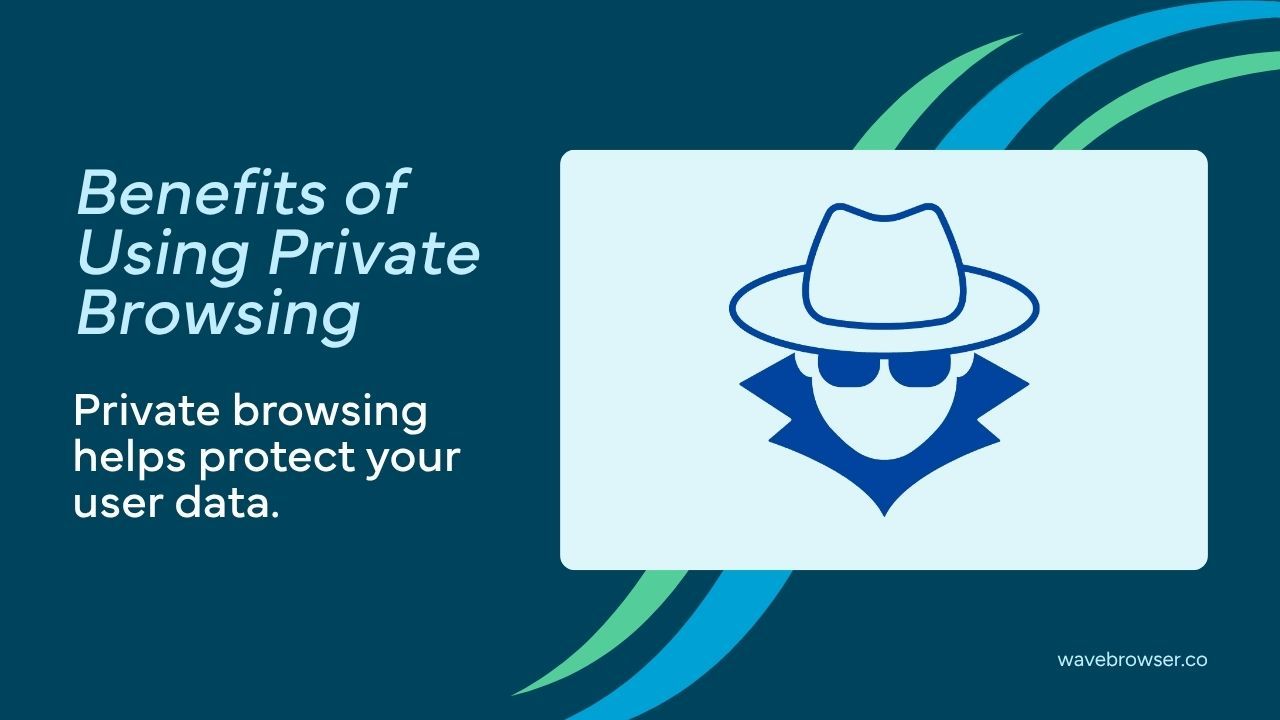
Using private browsing helps protect your user data by preventing the browser from storing your search history, cookies, and form entries. When you open a new window in private mode—whether on Mac, Linux, or any other device—you reduce the chances of sensitive data being saved or exposed. It's a simple way to improve data protection every time you go online, especially when using shared or public computers.
Stay with us to explore the key benefits of using private browsing.
Protects Your Personal Data
Private browsing prevents your device from storing sensitive information like login credentials, autofill data, and form entries. This helps safeguard your personal data—especially when using shared or public computers.
Hides Your Search and Browsing History
When using private mode, your search history and browsing activity aren’t saved. This means no one can see what sites you've visited or what you’ve searched for once the private tab is closed.
Blocks Trackers and Reduces Targeted Ads
Some private browsers come with built-in features that block trackers and cookies, limiting advertisers' ability to follow you across the web and build a profile for targeted ads.
Helps Manage Multiple Sessions
Private browsing allows you to log into the same site with different accounts at the same time. Great for managing work/personal logins or testing user access without switching devices.
Prevents Autofill of Saved Credentials
In private mode, your browser won’t autofill passwords, addresses, or payment details—reducing the risk of exposing your credentials on a shared device. For added security and convenience, using a password manager helps you store and encrypt login information without relying on your browser to remember it during private sessions.
Avoids Shopping or Pricing Manipulation
Some sites track your visits to influence prices or offers—especially on travel and eCommerce platforms. Using a private browser helps reduce these biases by limiting cookies and past browsing behavior.
Wave Browser takes it a step further with a built-in price tracker that monitors product and deal fluctuations in real time—without relying on your personal data. This way, you get fairer pricing and smarter savings without being tracked.
Convenient on Android and iOS
No matter which mobile device you use—whether it’s iOS, Android, or a tablet—private browsing lets you maintain your privacy across platforms. When you open a private or incognito tab, your browser won’t save your search history, cookies, form entries, or cached files.
This means that once you close the session, there’s no trace of your activity left behind. It’s an easy, built-in way to protect your user data while switching between devices or browsing on the go.
Clears Cookies and Temporary Files Automatically
Once you close a private session, cookies, cache, and temporary data are cleared—keeping your device cleaner and more secure over time.
Which Browsers Offer the Most Privacy?

Not all browsers prioritize privacy. The most trusted private browser options for everyday browsing include:
Wave Browser
A browser with built-in privacy features that helps clean the ocean with every download.
- Ad and tracker blocking
- Built-in AI assistant
- Optimized tab and bandwidth use
- Secure password and bookmark management
- Choose your default and private search engine
- Helps fund ocean cleanup with every install
Firefox
An open-source browser known for privacy-first features, customizable settings, and regular security updates.
Brave
Automatically blocks ads and trackers, offers a VPN, and integrates with private search engines.
DuckDuckGo App
More than a search engine, it’s also a full browser app on iOS and Android that erases data after each session.
Tor Browser
Routes your activity through encrypted relays. It's great for anonymity, though slower for everyday use.
Chrome and Incognito Mode: Benefits and Limitations
Google Chrome’s incognito mode offers a simple way to browse more privately. You can launch a new incognito tab in seconds, allowing you to surf the web without saving your browsing history, cookies, or form entries on your device. It also disables autofill and prevents cache buildup during your session, making it helpful for one-time logins, sensitive searches, or using shared computers.
However, Chrome’s incognito mode has important limitations:
- It does not block third-party trackers by default
- It doesn’t prevent advertisers from delivering targeted ads
- If you're signed into your Google account, Chrome may still link some activity to your profile—even while in incognito mode
While Chrome’s private mode adds a layer of local privacy, it’s not designed to provide full anonymity or comprehensive data protection on its own.
Search Engines That Respect Privacy
Pairing a private browser with a private search engine boosts protection. Popular options include:
- DuckDuckGo – Anonymous internet searching
- Startpage – Uses Google results, but strips identifying info
- Mojeek – Independent search index, privacy-by-design
- Brave Search – Decentralized and ad-free
With Wave Browser, you can set any of these as your default search engine—no need to stick with Google.
Ways to Improve Your Protection Online
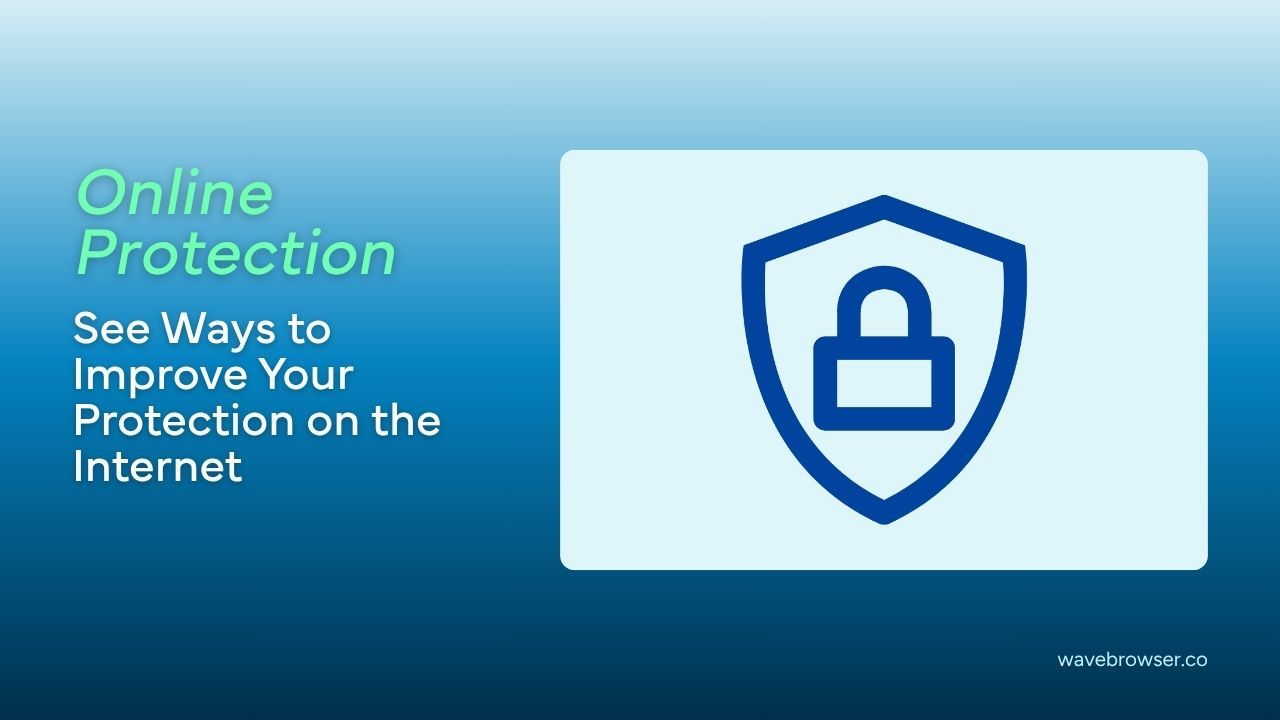
Use AI-Powered Privacy Tools
AI is increasingly being used in privacy and security software to detect threats in real time. According to a 2024 report by Cybersecurity Ventures, over 60% of modern security platforms now include AI-driven threat detection capabilities.
Some browsers and extensions use AI to flag phishing links, block suspicious trackers, and suggest safer alternatives as you navigate the internet. These tools can adapt faster than static filters, offering smarter, more responsive protection.
Download a Privacy-Focused Browser
Your browser plays a central role in your online safety. Always download a browser that prioritizes privacy with features like tracker blocking, encrypted connections, and smart tab isolation. This gives you a stronger baseline for security with every session—especially when paired with other tools like VPNs.
Use a VPN to Encrypt Your Internet Activity
A VPN (Virtual Private Network) encrypts your internet traffic and hides your IP address, shielding your activity from ISPs, hackers, or unsecured networks. Especially when using public Wi-Fi, a VPN helps secure your connection and preserve anonymity across the internet.
Manage Tabs for Better Security
Keeping too many tabs open can be more than just a performance issue—it can increase your exposure to insecure sessions. Use private tabs for sensitive tasks like banking or account logins, and regularly close unused tabs to reduce tracking and session hijacking risks.
Rethink Your Use of Google
While Google is widely used, it also collects significant amounts of user data tied to your searches, location, and activity. Consider switching your default search engine to one that doesn’t track your behavior. Private search engines like DuckDuckGo, Startpage, or Mojeek offer anonymous searching without logging your queries.
Using a private browser is one of the easiest ways to take control of your user data and reduce tracking online. But not all private modes offer the same level of protection.
Wave Browser goes further—with built-in ad and tracker blocking, AI-powered tools, and real-world impact through verified ocean cleanup.
Make every tab count—for your privacy and the planet.


